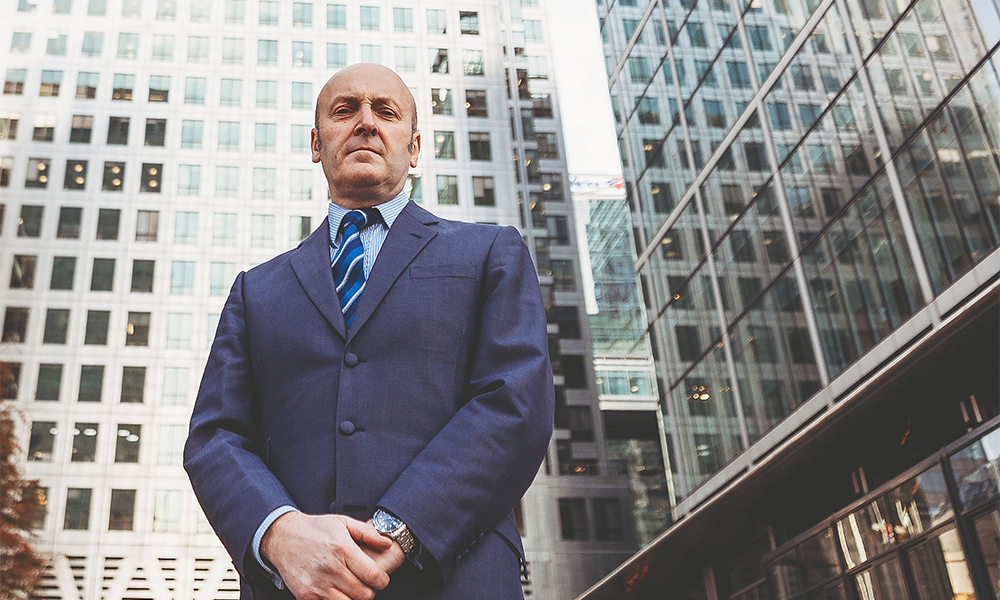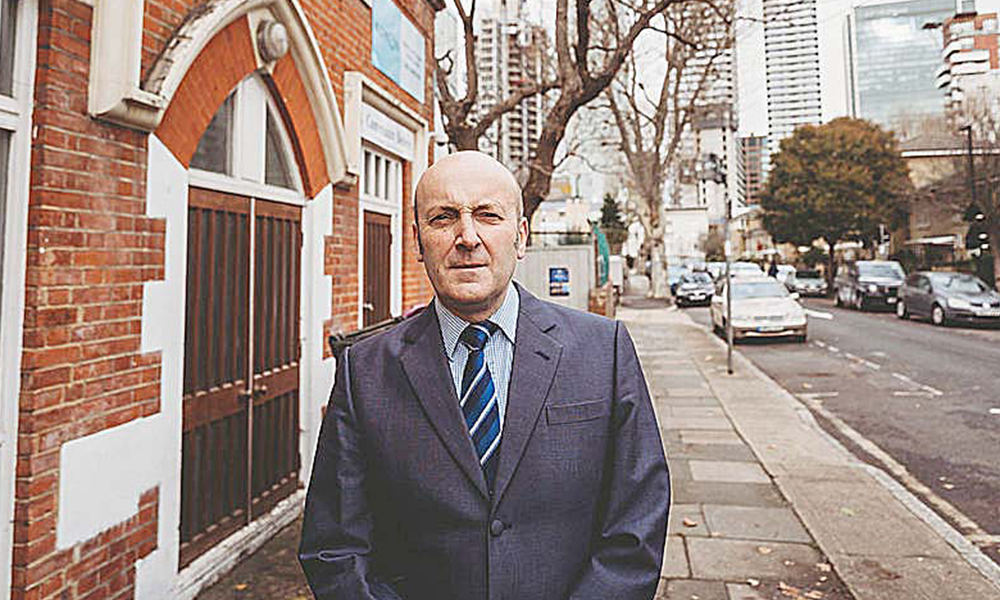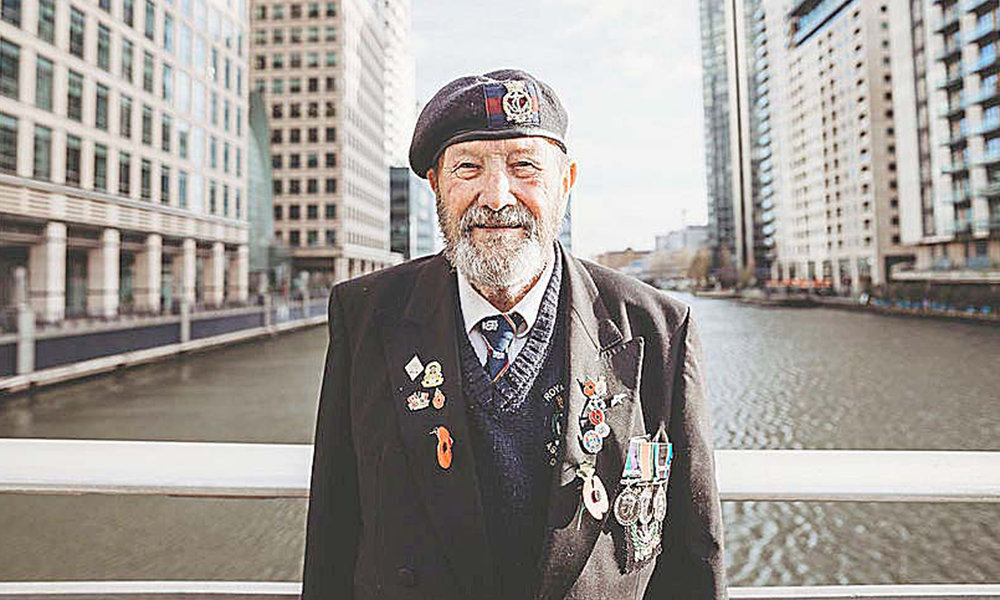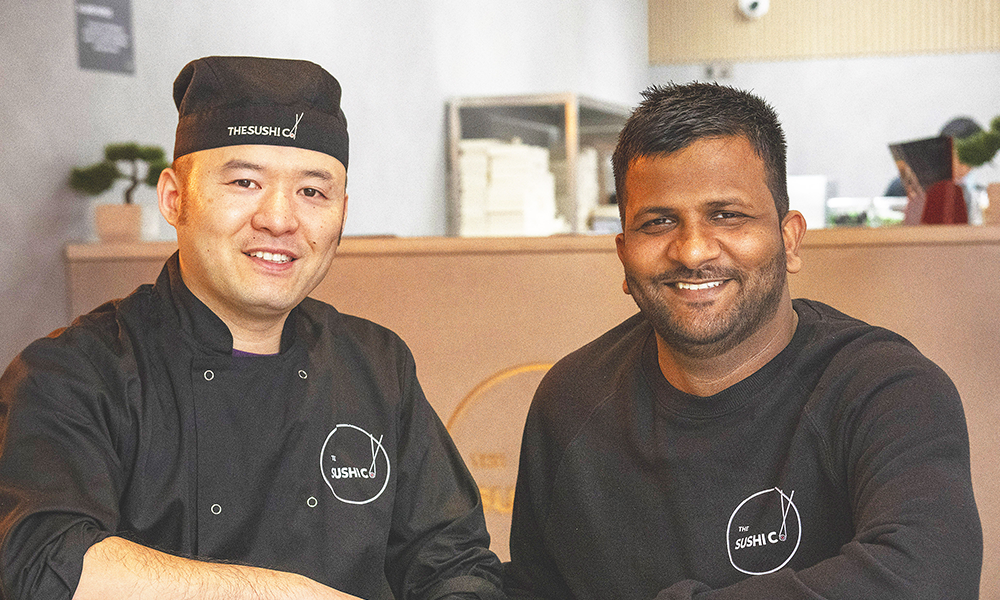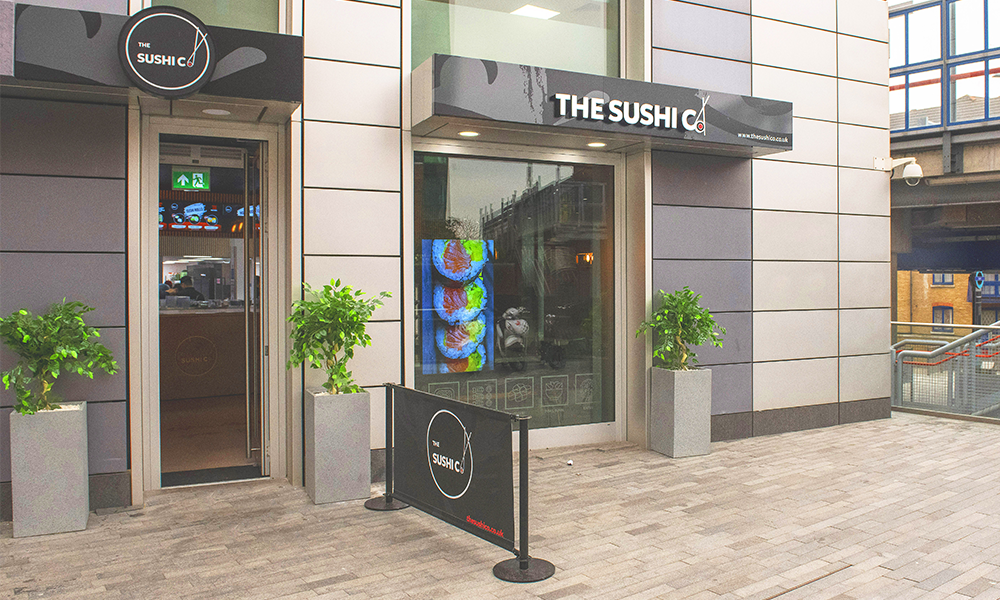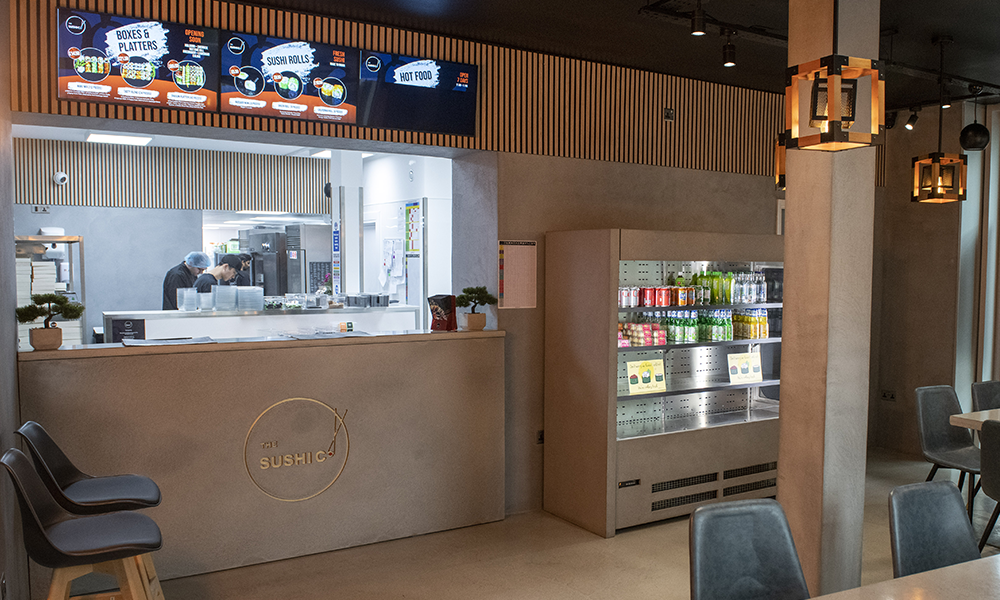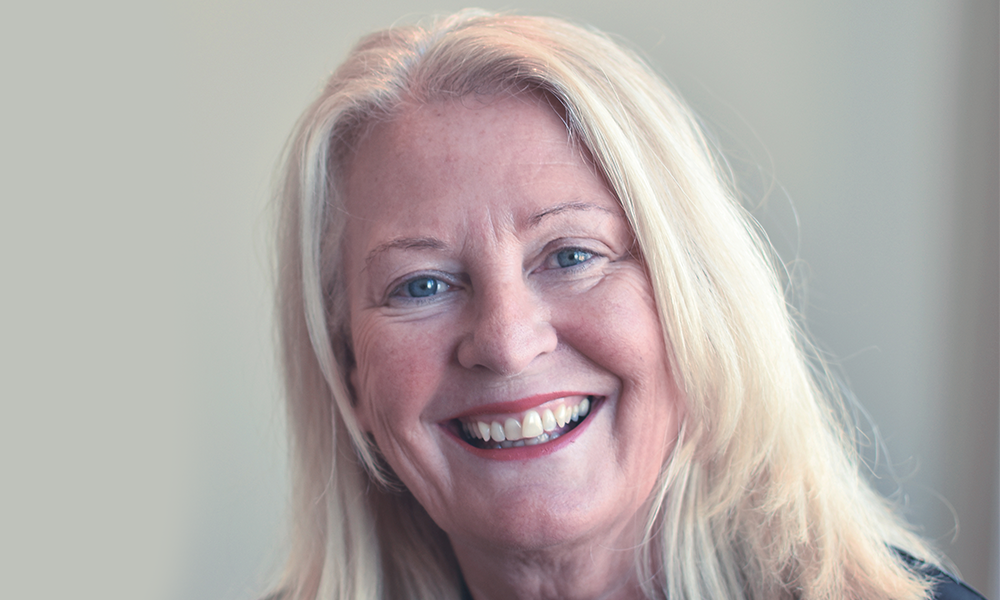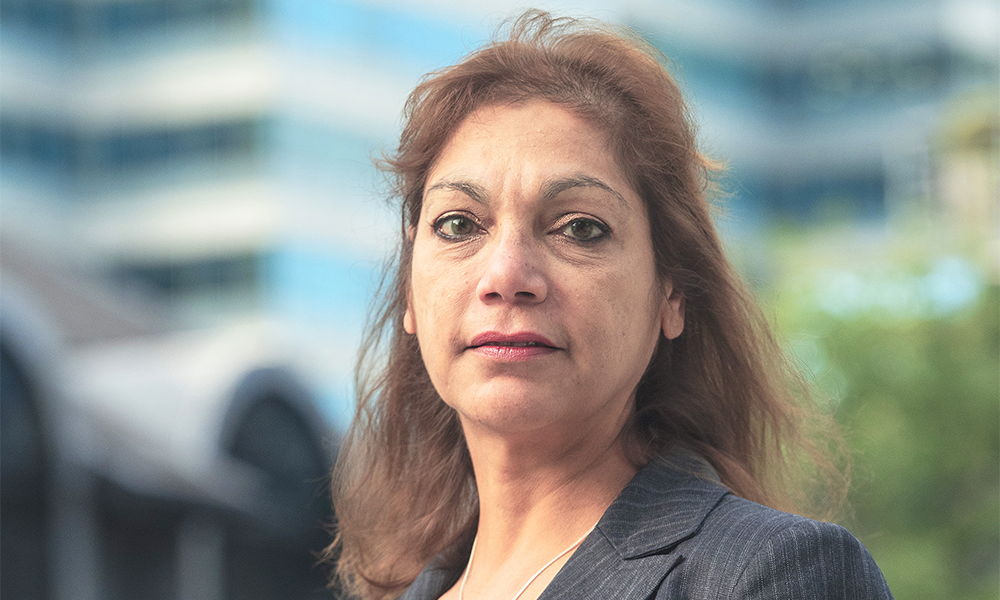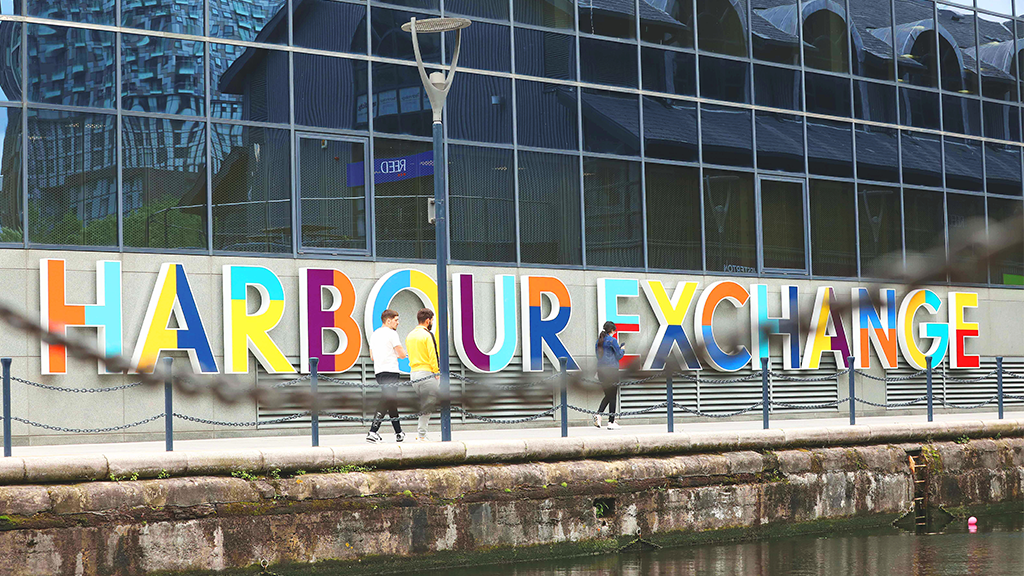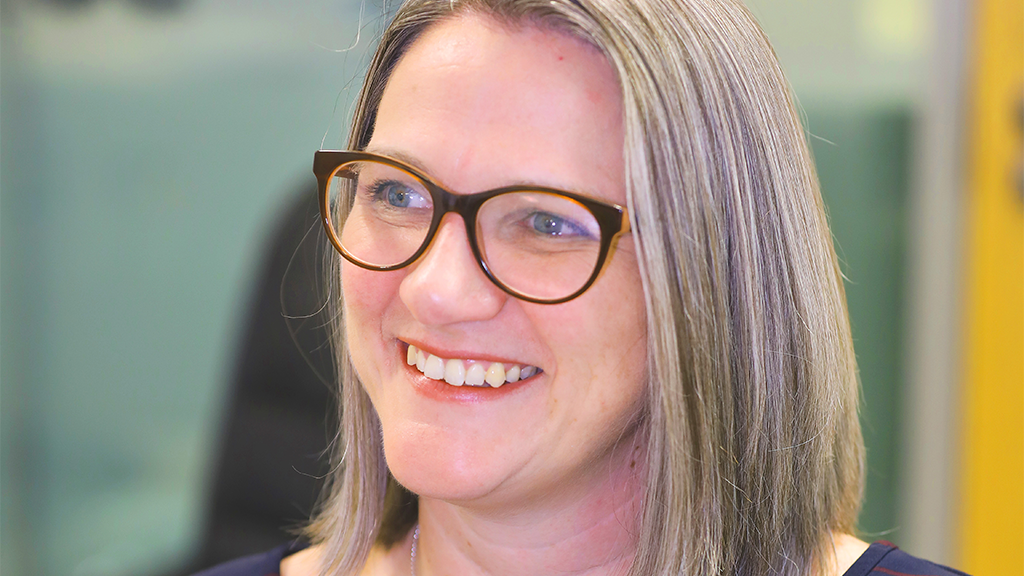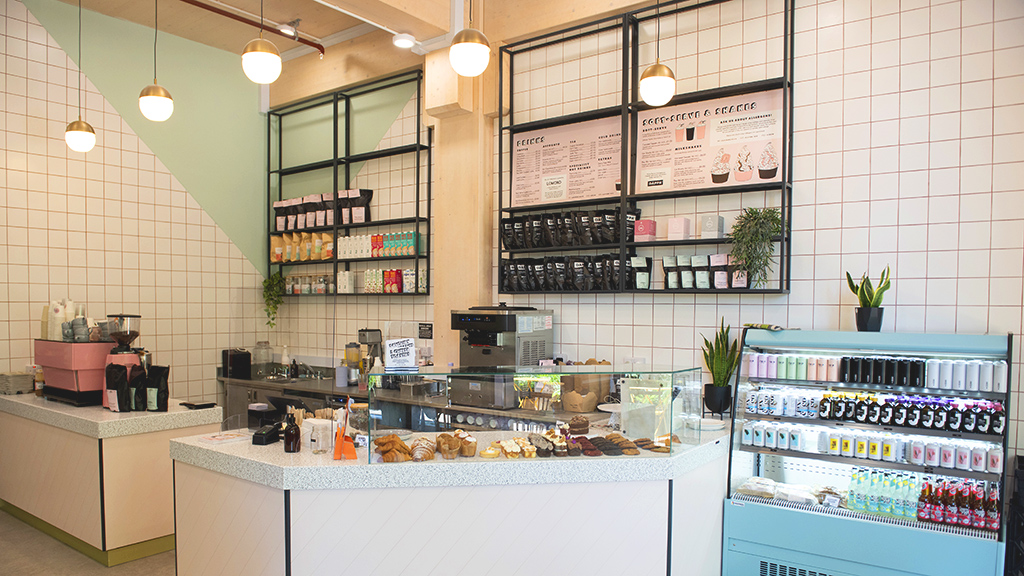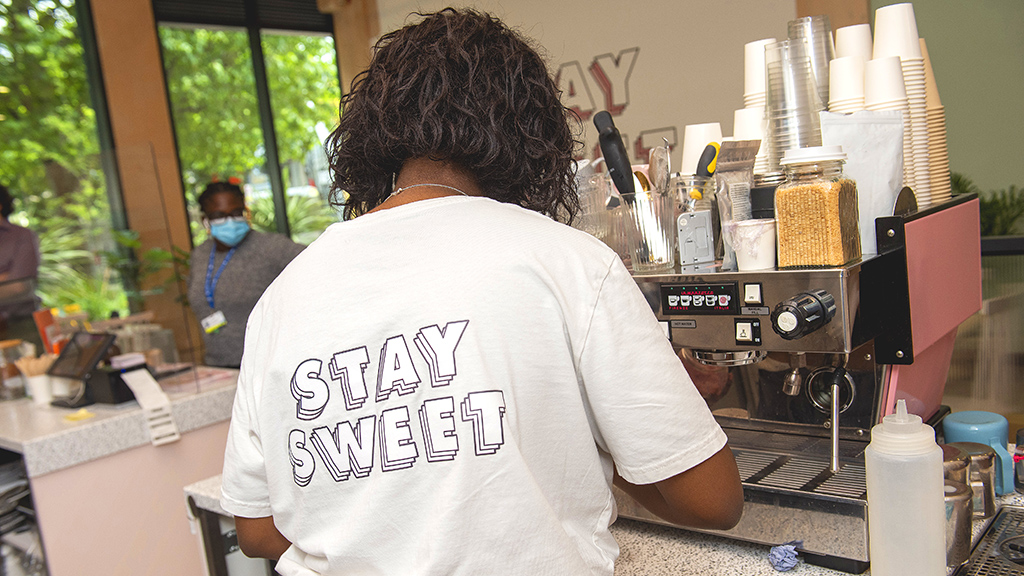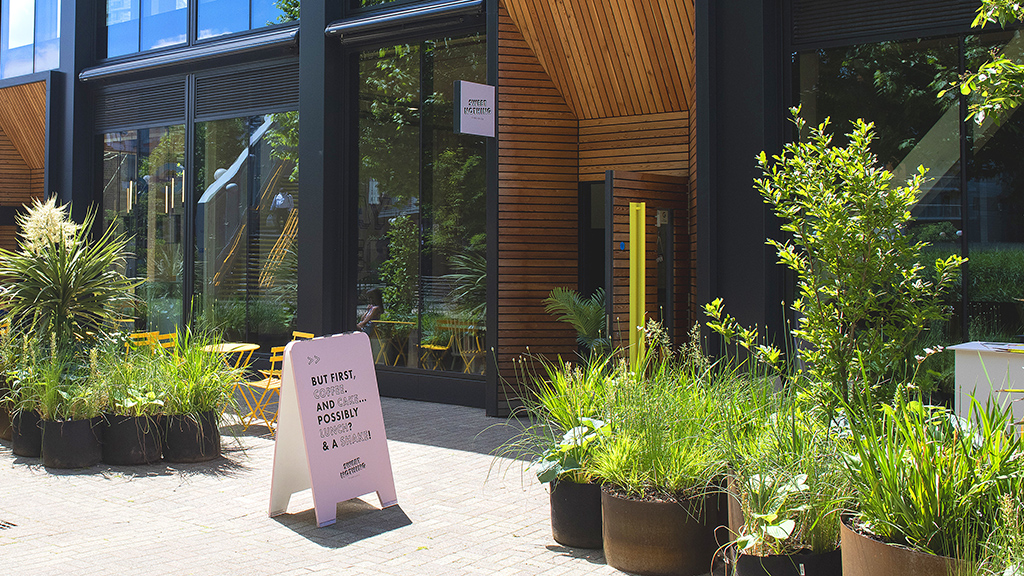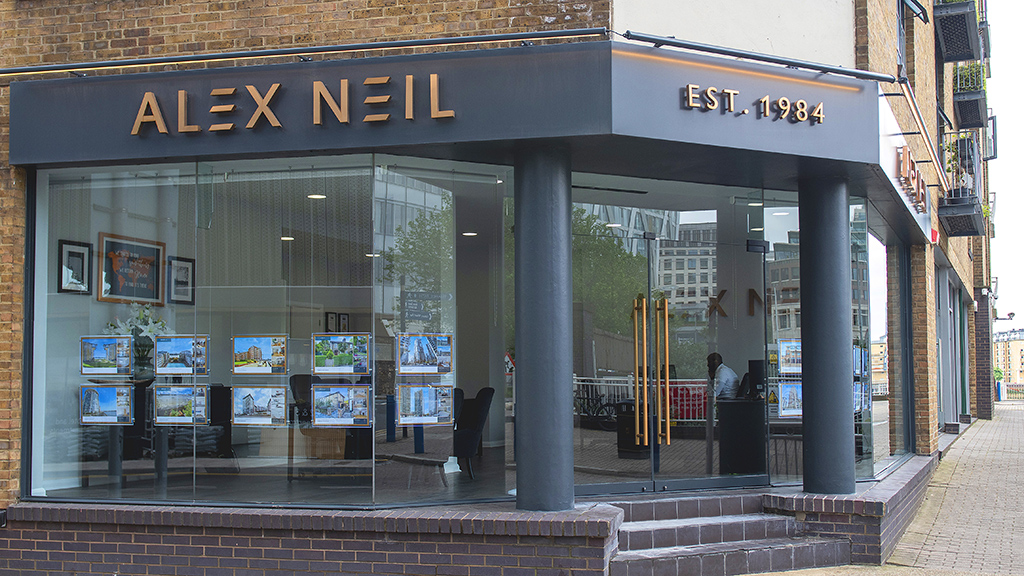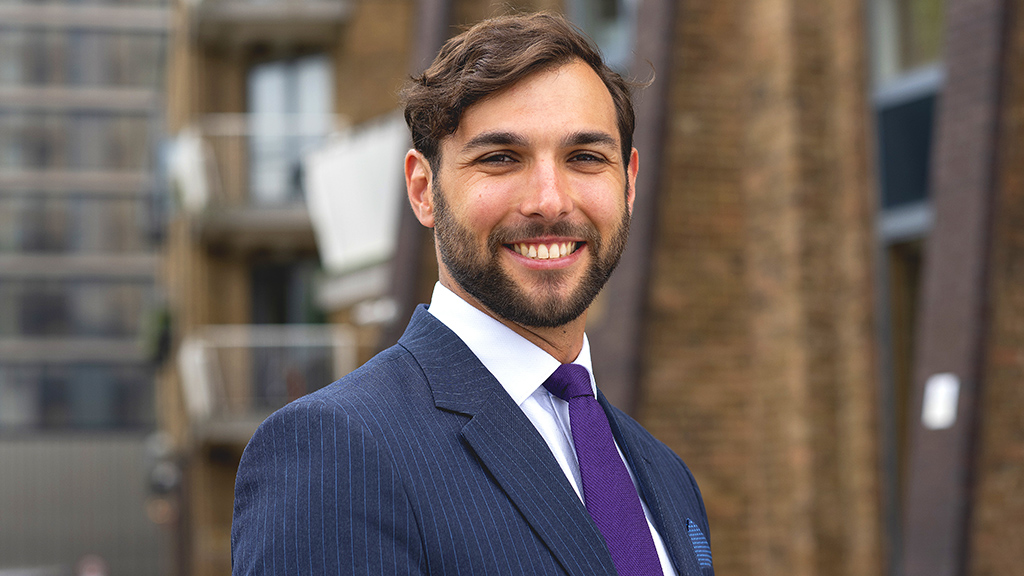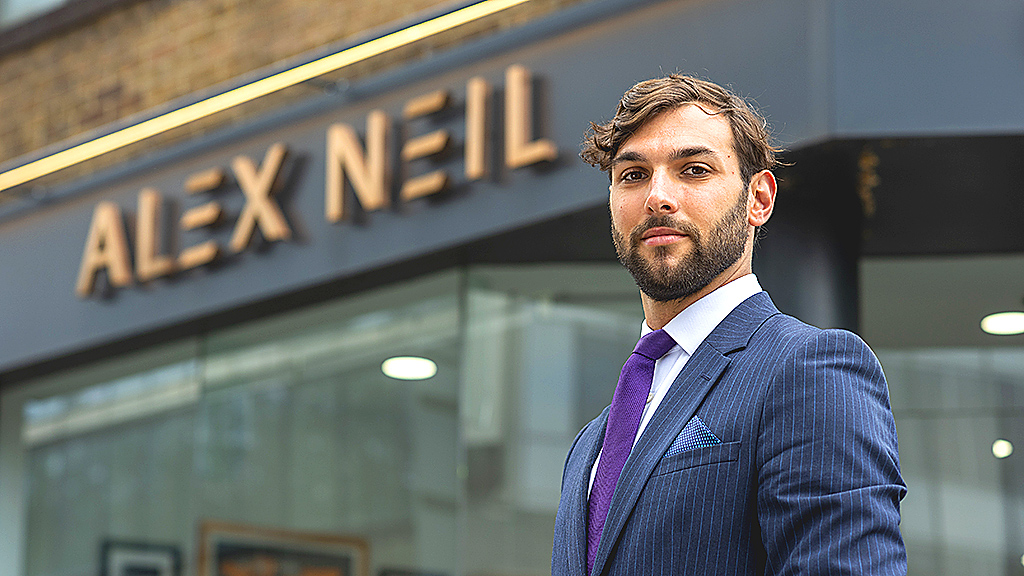Craft Central-based maker will also be participating in workshops for London Craft Week in May
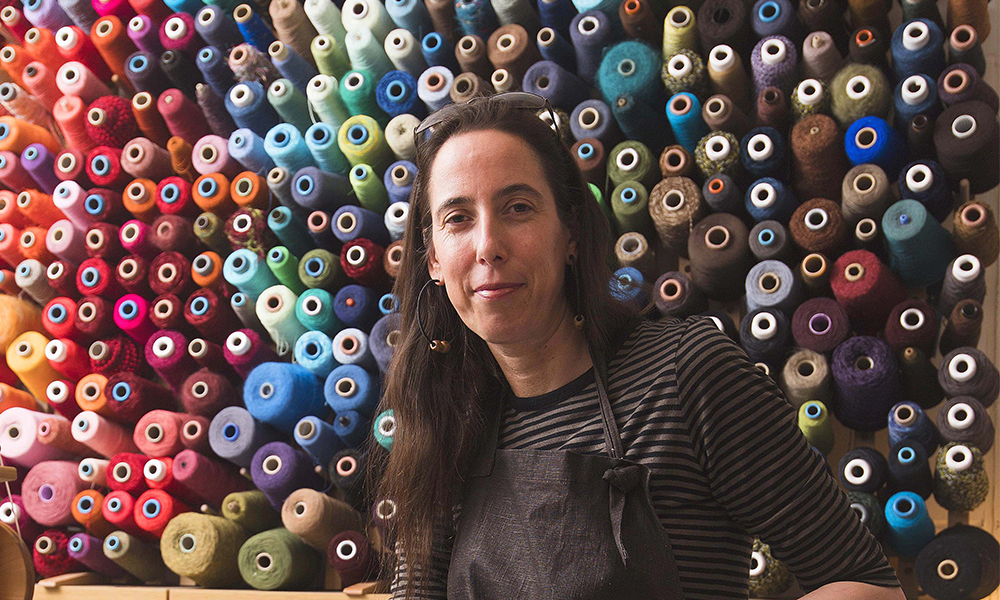
Subscribe to Wharf Life’s weekly newsletter here
BY LAURA ENFIELD
Decompressing after a hard day at work used to be about sweating at the gym or partying in bars.
But, post-pandemic, people have been seeking out gentler ways of relaxing – sitting at a loom, for example.
Freeweaver Saori Studio at Craft Central is fast becoming a haven for those who want to embrace a slower pace of life, even if only for a few hours.
“Half my students are fashion students and the other half come for the mindful aspect of it,” said Erna Janine, owner of the Isle Of Dogs-based business.
“Stressed out businessmen from Canary Wharf want to do something relaxing that’s totally off the grid with no screens.
“It’s rhythmical and a mindful way of gathering your thoughts while doing something with your hands to create a simple piece of cloth.”
Erna will be hosting two workshops during London Craft Week (May 9-15) – one to introduce the technique of Saori weaving and the other showing how to integrate the cloth it produces into existing items of clothing.
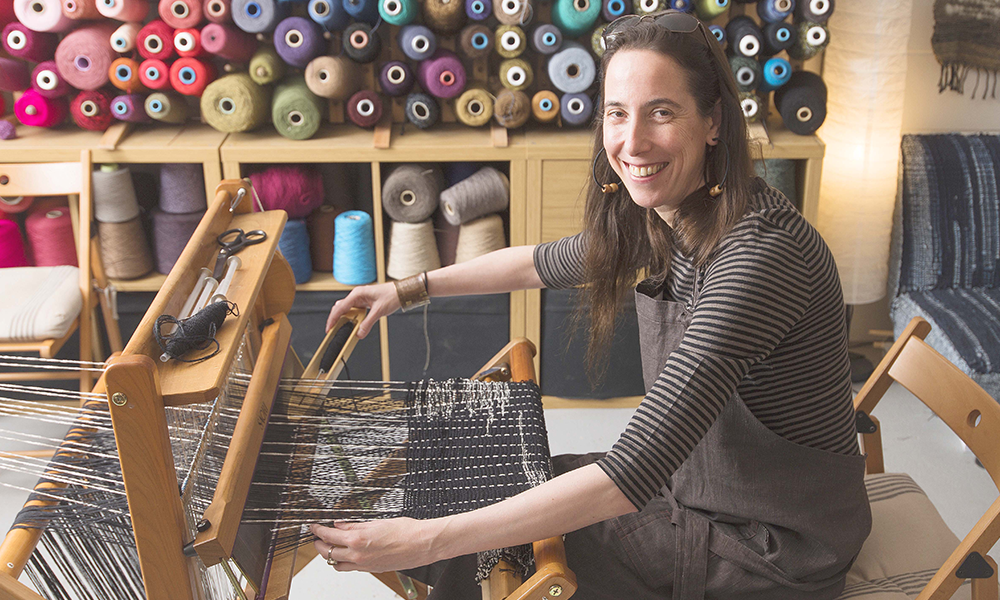
She is also reinventing the pinstripe for the event and the finished result will be on display at Craft Central in Westferry Road.
The 45-year-old, who grew up in Holland, discovered the Japanese technique of Saori seven years ago.
Instead of following a rigid repeating pattern like traditional weaving, the freestyle method encourages weavers to use their creativity to create totally unique pieces of cloth every time they weave. For Erna, it was a revelation.
“Weaving is in my family, “ she said. “I always felt an affinity with it through my maternal grandmother, who made all her own clothes and wore traditional costume. Weaving was also part of the curriculum at my schools.
“When I was 18 I got an apprenticeship in Iceland to be part of a weaving workshop in the remote highlands for a few years, then I did a textile degree in Iceland.
“It has just always been part of my life. But that was very formal with mega big looms that took days to even set up.
“When I found this Japanese way of weaving, I found myself as a contemporary weaver.”
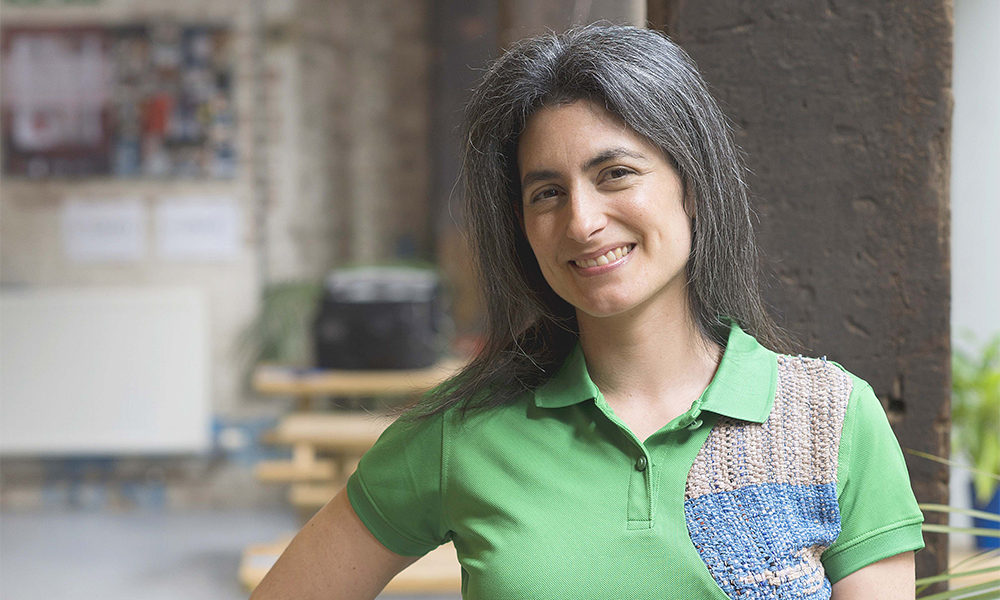
Erna travelled to Japan to study Saori – invented by Misao Jo 50 years ago as a reaction to the country’s technological boom.
“There was this throwback where people started questioning their relationship with technology,” said Erna.
“She was one of the people who made a stance against it by weaving her own clothes in a way that you could see they were handmade.
“She was 99 when I met her and died aged 104, as something of a cult figure in Japan.
“She said the human being was full of creativity and playfulness and that should be visible in the things we surround ourselves with. They should be based on the innovation around us, but also the joy of making things.
“I thought she captured that so well in the design of her equipment, which allows everyone to express themselves uniquely.
“With a traditional weave, you follow instructions, but this is the opposite. It’s about fun, making something new and trying things out. It is a vehicle for creativity.
“I immediately loved it and found it very liberating because I had spent so many hours at school weaving samples and, if a small mistake showed, the cloth would be cut off and thrown away.”
Erna said Saori was much more welcoming for beginners and she knew straight away she wanted to teach it.
“I could be a regular weaver in London and make scarves, but you can only make so many,” she said. “It’s so much more interesting to teach people how to make these simple things themselves.”
In 2017, Erna landed at Craft Central, a charity set up 50 years ago to support makers, after getting permission to teach Saori in London.
“I liked the area and its proximity to Canary Wharf and Greenwich and the maritime history,” she said. “It’s enveloped in the history of this area and it’s nice to be by the river.
“Every time I’m a bit tired I can walk there and have a stretch – there’s so much space and it has so many textures – I always come back inspired.”
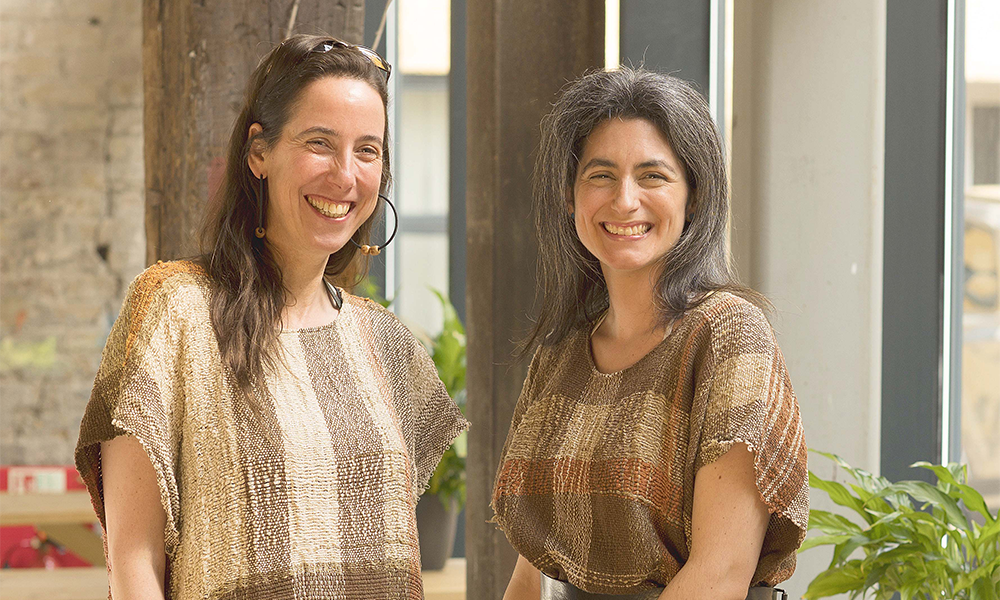
She has about 40 regular students who she has taught to weave who now visit the studio for sessions on a loom.
“They come in by the hour – a bit like a gym – and make what they want to make,” said Erna.
“They just want some time with other people doing something creative in a beautiful setting.
“It’s not too heavy on the technical and is really more about enjoying the colours and textures and just coming to terms with these simple techniques that surround us from birth.
“Everything we wear is textiles and most of it is woven, so it’s a good way to connect with our distant ancestors as well, who had to create them by hand.”
Classes are held most weekdays and one weekend a month. She also organises the biannual Japanese Textile And Craft Festival with other makers and the Festival Of Natural Fibres (May 28-29) in conjunction with the Gandhi Foundation. This year, silk spinners will be over from India to talk about their techniques.
“People are looking at objects and the things around them in a different way,” said Erna. “We see it with food – people being more picky – and I think fashion will be the next thing where people start to choose with more care.
“People should see fast fashion as pollution. I have travelled to India extensively as I work with organic cotton farms and silk spinners.
“It’s horrible to see the river bright pink because it’s in this season. I don’t think severe change is necessary, though – just slow progress because people need employment.”
Erna does her bit by avoiding acrylic yarns and using recycled materials saved from landfill.
She splits her time between Deptford and Stroud, where she has a home studio in an old textile mill.
She also weaves outside and forages in the forest.
“I created my first clothing collection there in lockdown,” she said.
“People often ask if I go home and weave after teaching a whole day. I answer: ‘Yes of course, it’s so relaxing’.”
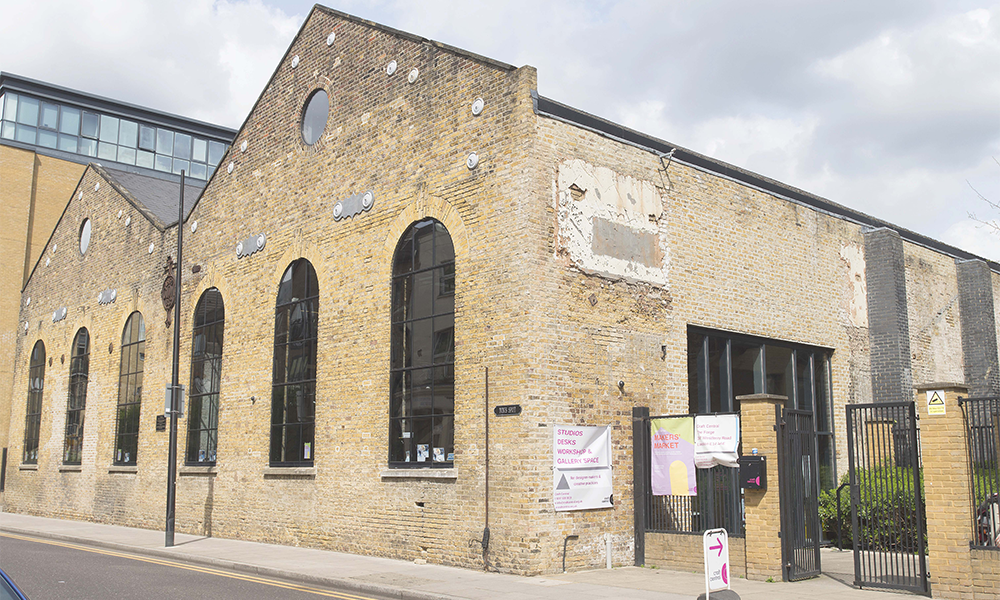
LONDON CRAFT WEEK WORKSHOPS AT CRAFT CENTRAL IN 2022
- May 10 – Rework Your Garment Using Creative Sewing And Saori Weaving
- May 11 – Saori Weaving With Natural Fibres + Bengala Dye
- May 11 – Sewing A Japanese Komebukuro Rice Bag
- May 13 – Ikebana Japanese Flower Arrangement
- May 14 – Make Your Own Botanical Illustration Inspired 3D Paper Rose
- May 14 – Paint Your Own Ceramic
- May 14 – Pyrography Fire Drawing Workshop
- May 14 – Makers Market 10.30am-5.30pm. A wide range of items will be on sale at Craft Central including interior products, jewellery, prints, textiles, fashion, ceramics, and woodwork
- May 15 – Jesmonite Casting
Find our more about these workshops here
Read more: How one couple are bringing Brazilian street food to Wapping




